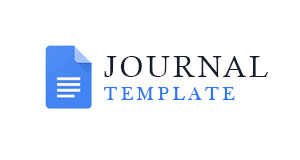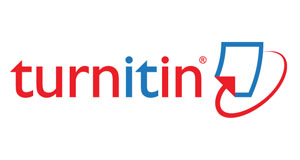Exploration Of Halal Standard Implementation In The Hospitality Industry In Indonesia
Abstract
The outbreak of the Islamic economic trend has become a branding that currently attracts the attention of many business people from various sectors including the hotel industry. Moreover, Indonesia as the world's largest Muslim country, of course, this condition is a momentum for business people to develop their businesses. Karena islamic branding is not just a form of Muslim compliance with sharia, but also an attraction and lifestyle of the community. This perception has become the trigger for the rise of businesses using sharia identity which cannot be ascertained the correctness of the labeled sharia discrimination. This study aims to see the suitability of sharia hotel implementation with the regulators compiled by DSN-MUI. This research is a fieldresearch with an exploratory descriptive qualitative approach, data collection techniques obtained through observation, depth interviews, and documentation. Data analysis was carried out using the Spradley method in stages ranging from domain analysis, taxonomy, componential and finally analysis of cultural topics. The results showed that the implementation of sharia principles has not been fully applied properly to Namira Hotel Syariah Yogyakarta, especially the aspect of recruiting employees who still prioritize Muslims, worship management has not been managed evenly, hotel operations do not have sharia supervisors and moreover Namira Hotel Syariah does not yet have an official permit for DSN-MUI halal certification, p Sharia endalilan is based on the wishes of business people, not from sharia selection and standardization. The results of the research findings can be used as material for evaluation and quality assessment standards for the implementation of sharia hotels in Indonesia based on DSN-MUI fatwa No. 108 of 2016.
Keywords
Full Text:
PDFReferences
Safe, N., & Nasution, S. (2022). Implementation of Sharia-Based Hotel Management System (Case Study on Al'Jayri Sharia Hotel Medan). Journal of Islamic Economics and Finance, Vol. 1, No(2963–0975).
Annur, C. M. (2022). There are 2 Billion Muslims in the World, The majority in Asia. 15 JJuni 2022. https://databoks.katadata.co.id/datapublish/2022/06/15/ada-2-miliar-umat-islam-di-dunia-mayoritasnya-di-asia
Arifin, M. J. (2021). Islamic Branding Strategy in Building Consumer Trust. Journal of Sharia Economics) , Vol. 8, No.
Baharuddin, A. Z., & Hasan, F. A. Al. (2018). Sharia Hotel Business Development in Indonesia (Case Study of Sharia Hotel Development in Lombok, West Nusa Tenggara Province). Journal of Al-'Adl, 11(1), 33–52. http://ejournal.iainkendari.ac.id/al-adl/article/view/1106
Hussein, M. A. (2022). Islam Is Growing Faster amid the World's 8 Billion Population. Sky7. https://langit7.id/read/25525/1/islam-tumbuh-lebih-cepat-di-tengah-8-miliar-populasi-dunia-1668391905
Lubis, R., Rusydiana, A., Nasirin, W. K., & Kartikawati, D. R. (2023). Human Development Index and Halal Tourism Performance: Case Study of The Country with The Lowest Safety for Muslim Tourists. Amwaluna: Jurnal Ekonomi Dan Keuangan Syariah, 7(2), 243–257. https://doi.org/10.29313/amwaluna.v7i2.11135
Mansyurah, F. A. (2019). Sharia Hotel Business Opportunities and Challenges In A Cosmopolitan Society. AT-TARADHI: Journal of Economic Studies, Vol. 9, No, 91. https://doi.org/DOI:10.18592/at-taradhi.v9i2.2511
Negeri, D. J. K. and P. S. (Dukcapil) K. D. (2022). Percentage of Religious Adherents in Indonesia. December 31, 2021.
Pratiwi, E. K. (2017). Adilla Syariah Yogyakarta Hotel Management Analysis (DSN MUI Fatwa Review No: 108/DSN-MUI/X/2016). Horizons: Journal of Islamic Studies, 12(1), 75–90. https://doi.org/10.31603/cakrawala.v12i1.1834
Ramdhan, A. K., Hidayat, A. R., & Bayuni, E. M. (2018). DSN-MUI Fatwa Review No . 108 / DSN-MUI / X / 2016 About Guidelines for Organizing Tourism Based on Sharia Principles and Consumer Perceptions of Sharia Hotels in Tourist Areas in Lembang (Case Study of Rumah Kayu Syariah Hotel). Proceedings of Sharia Economic Law, 4(2), 817–823.
Rasyid, A. (2019). DINAMIKA PELAKSANAAN SERTIFIKASI HALAL PADA PRODUK MAKANAN DAN MINUMAN DI KOTA MEDAN, SIBOLGA DAN PADANGSIDIMPUAN. MIQOT: Jurnal Ilmu-Ilmu Keislaman, 43(2), 167. https://doi.org/10.30821/miqot.v43i2.640
Retnoningsih, S. A. (2017). Big Dictionary Indonesian. Widya Karya.
RI, K. P. (2016). The Indonesia Halal Lifestyle and Bussines. Indonesia Halal Lifestyle.
Riyanto, N. R., & Faraby, M. E. (2022). Implementation of Guidelines for the Implementation of Sharia Tourism Based on DSN-MUI Fatwa NO.108 / DSN-MUI / X / 2016 (Study on Sharia Hotel C1 Sumenep). Adz Dzahab: Journal of Islamic Economics and Business, Vol. 7, No(2751–1905).
Sutrisno, E. (2022). Towards a Sharia Economic Center Indonesia in 2024. Indonesia.Go.Id. https://www.indonesia.go.id/kategori/editorial/3585/menuju-indonesia-pusat-ekonomi-syariah-di-2024
DOI: https://doi.org/10.24952/tijaroh.v9i1.6920
Refbacks
- There are currently no refbacks.
Copyright (c) 2023 At-tijaroh: Jurnal Ilmu Manajemen dan Bisnis Islam

This work is licensed under a Creative Commons Attribution-ShareAlike 4.0 International License.









